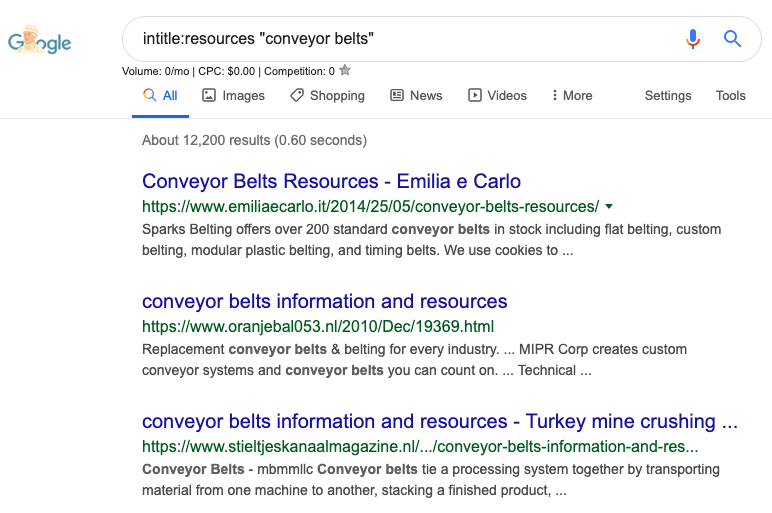Do you get frustrated with search results that are too broad, or just plain irrelevant? Don’t fret, because there is a way to get better search results – with Google search operators.
I’ll take you through what Google search operators are, and how they can help you get better search results.
What are Google search operators?
Google search operators are terms used in search queries to help you get better search results.
They allow you to see only a specific set of results, such as when you’re looking for pages on a particular website, or by a specific author. These are only a couple of examples of the many specific searches you can carry out.
How can they help you get better search results?
When searching with a word or short phrase, you can often get very broad results. Rather than sifting through endless pages trying to find something relevant to you, a simple operator can make your results more specific.
For those trying to get their website ranking better in Google, search operators can also be a great way to find relevant websites that could link to you. For example, you can narrow your results down to blogs about certain topics, or relevant sites with resource pages that link to others in the industry.
Some helpful Google search operators
Here are a few of the most useful Google search operators, which will really narrow down your search results.
Site: This Google search operator allows you to search for pages within a particular website. So, if I were looking for pages about Google Analytics on the Hallam website, I would search site:www.hallaminternet.com “analytics”. Here are the first few results I get from this search:

The website address needs to be placed immediately after the operator, with no space (which applies to all search operators). Placing “analytics” within speech marks means that only pages containing this exact word will be returned.
Intitle: This allows you to retrieve results that have a specific term in their title. It can be a useful search operator when looking for resource pages that you could ask to link back to you. For example, a conveyor belt manufacturer could search for intitle:resources “conveyor belts” in order to retrieve a list of pages to do with conveyor belts, many of which link to relevant sites:

Inurl: A URL is the address of a specific page on a website. Often, a URL will contain terms that indicate what kind of page it is. This is often true of blog posts. Many blogs that are part of larger websites will have “/blog” as part of their URL.
So, if I were looking for blogs about fishing, I would search: inurl:blog “fishing”. For this search, a lot of results for blogspot.com were coming up, so I used another operator to exclude the site from my results. When you add [-] to most search operators, Google will exclude results that contain the term you specify. Therefore, adding -site:blogspot.com to this search gave me better results.
There’s plenty more you can do
There are lots of other Google search operators to experiment with. Getting used to them can mean better search results, and less time spent clicking through page after page of search results.
If you would like to understand more about search operators, or get help with using them to find good linking opportunities, then please fill out our contact form, or give us a ring on 0115 948 0123.




